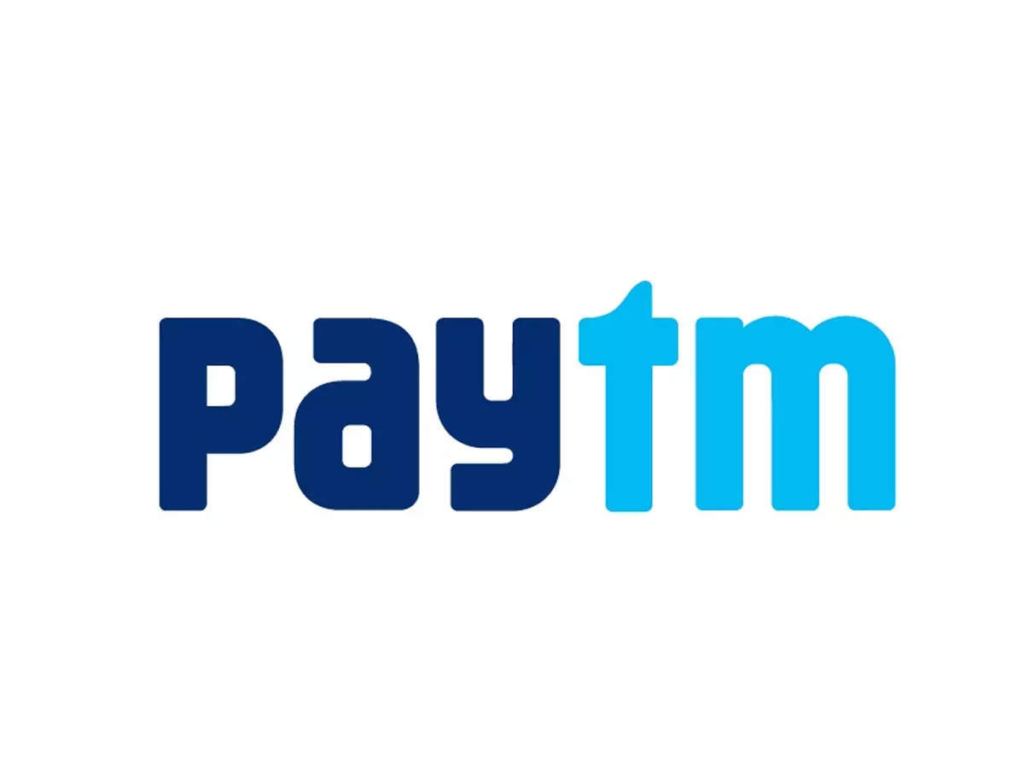India has emerged as a hotbed of fintech innovation, with startups revolutionizing various facets of financial services. These companies leverage technology to provide seamless, efficient, and inclusive financial solutions to individuals and businesses across the country. Here’s a look at the top 10 fintech startups in India that are making waves:
1. Paytm

- Founded: 2010
- Key Features: Paytm started as a digital wallet but has since diversified into payments banks, providing services like digital payments, wealth management, insurance, and more. It’s one of the most widely used fintech platforms in India.
| Aspect | Details |
|---|---|
| Industry | Digital Payments, Payments Bank, Financial Services |
| Impact | Widely used for digital payments, utility bill payments, online shopping, and more. It offers financial inclusion to millions of Indians. |
Summary: Paytm is a leading digital payments and financial services platform in India, offering a wide range of services including digital wallets, payments banks, wealth management, and insurance. It has significantly enhanced financial inclusion by providing convenient and secure digital payment solutions to millions of users across the country.
2. PhonePe

- Founded: 2015
- Key Features: Acquired by Walmart, PhonePe is a UPI-based payments app that offers peer-to-peer and merchant transactions. It also provides services like mutual funds, insurance, and credit offerings.
| Aspect | Details |
|---|---|
| Industry | UPI Payments, Financial Services |
| Impact | Popular for peer-to-peer transactions, merchant payments, and expanding financial services accessibility through digital platforms. |
Summary: PhonePe is a popular UPI-based payments app that facilitates peer-to-peer transactions, merchant payments, and offers additional financial services such as mutual funds, insurance, and credit products. It has played a key role in expanding digital payment adoption and accessibility in India.
3. Razorpay

- Founded: 2013
- Key Features: Razorpay is a leading payments solutions provider for businesses. It offers payment gateway services, automated payment solutions, and is known for its robust developer-friendly APIs.
| Aspect | Details |
|---|---|
| Industry | Payments Solutions, Financial Technology |
| Impact | Enables businesses to accept online payments seamlessly, integrates with various platforms, and supports India’s growing e-commerce sector. |
Summary: Razorpay provides comprehensive payment solutions for businesses, including payment gateway services and automated payment solutions. It is known for its developer-friendly APIs and has enabled thousands of businesses to accept online payments seamlessly, supporting India’s growing digital economy.
4. Policybazaar

- Founded: 2008
- Key Features: Policybazaar is India’s largest online insurance aggregator. It allows users to compare and buy insurance products across categories like life insurance, health insurance, and motor insurance.
| Aspect | Details |
|---|---|
| Industry | Insurance Aggregator, Financial Services |
| Impact | Simplifies insurance purchase decisions, promotes transparency, and offers a wide range of insurance products tailored to individual needs. |
Summary: Policybazaar is India’s largest online insurance aggregator, offering a platform for users to compare and purchase various insurance products such as life insurance, health insurance, and motor insurance. It simplifies the insurance buying process and promotes transparency in the insurance sector.
5. Lendingkart

- Founded: 2014
- Key Features: Lendingkart leverages data analytics and technology to provide working capital loans and business loans to small and medium-sized enterprises (SMEs) without the need for collateral.
| Aspect | Details |
|---|---|
| Industry | SME Lending, Financial Services |
| Impact | Supports small businesses by providing quick and easy access to capital, leveraging technology for credit assessment and disbursement. |
Summary: Lendingkart leverages technology to provide quick and easy access to working capital and business loans for small and medium-sized enterprises (SMEs) in India. It uses data analytics for credit assessment, enabling SMEs to obtain loans without traditional collateral requirements.
6. Zerodha

- Founded: 2010
- Key Features: Zerodha is India’s largest retail stockbroker offering zero brokerage on equity investments. It has revolutionized the stockbroking industry with its low-cost, technology-driven approach.
| Aspect | Details |
|---|---|
| Industry | Stock Brokerage, Financial Services |
| Impact | Revolutionized retail stock trading with low-cost solutions, advanced trading platforms, and educational resources for investors. |
Summary: Zerodha is India’s largest retail stockbroker known for its discount brokerage model and zero brokerage on equity investments. It has transformed stock trading in India by offering low-cost trading solutions, advanced trading platforms, and educational resources for investors.
7. CRED

- Founded: 2018
- Key Features: CRED is a fintech startup that rewards credit card users for paying their bills on time. It offers rewards, discounts, and access to premium services to its members.
| Aspect | Details |
|---|---|
| Industry | Credit Card Payments, Rewards Platform |
| Impact | Encourages timely credit card payments through rewards, enhances user experience with exclusive perks and benefits. |
Summary: CRED is a fintech startup that incentivizes timely credit card bill payments by offering rewards, discounts, and access to premium services to its members. It enhances the credit card user experience and promotes financial discipline among users.
8. Upstox

- Founded: 2011
- Key Features: Upstox is another popular online brokerage firm that provides trading in stocks, commodities, and currencies. It is known for its low-cost trading platforms and extensive market research tools.
| Aspect | Details |
|---|---|
| Industry | Online Brokerage, Financial Services |
| Impact | Provides affordable and efficient trading solutions, empowers retail investors with robust market research tools and educational content. |
Summary: Upstox is an online brokerage firm that provides trading in stocks, commodities, and currencies at a low cost. It offers robust trading platforms and market research tools, empowering retail investors with efficient and affordable trading solutions.
9. Niyo Solutions

- Founded: 2015
- Key Features: Niyo offers digital banking solutions including salary accounts, savings accounts, and expense management tools. It caters primarily to blue-collar workers and SMEs.
| Aspect | Details |
|---|---|
| Industry | Digital Banking, Financial Services |
| Impact | Targets blue-collar workers and SMEs with digital banking solutions, enhances financial management and accessibility through technology. |
Summary: Niyo Solutions offers digital banking solutions tailored for blue-collar workers and SMEs in India. It provides salary accounts, savings accounts, and expense management tools through its digital platform, enhancing financial management and accessibility for its users.
10. LendingClub

- Founded: 2016
- Key Features: LendingClub is a peer-to-peer lending platform that connects borrowers with investors. It facilitates personal loans, business loans, and educational loans through an online marketplace.
| Aspect | Details |
|---|---|
| Industry | Peer-to-Peer Lending, Financial Services |
| Impact | Facilitates easier access to loans for individuals and businesses, promotes peer-to-peer lending as an alternative financing option. |
Summary: LendingClub operates a peer-to-peer lending platform that connects borrowers with investors. It facilitates personal loans, business loans, and educational loans through an online marketplace, providing an alternative financing option and easier access to credit for individuals and businesses.
Frequently asked questions (FAQs) about fintech startups in India:
1. What is Paytm and how does it work?
Answer: Paytm is a digital payments and financial services platform that allows users to make payments, transfer money, pay bills, recharge mobile phones, and shop online. It operates through a digital wallet and also offers services like payments banks, wealth management, and insurance.
2. How does PhonePe differ from other payment apps?
Answer: PhonePe is a UPI-based payments app that allows users to make direct bank transfers and payments to merchants without the need to share bank account details. It also offers additional financial services such as mutual funds, insurance, and credit products, making it a comprehensive financial platform.
3. What services does Razorpay provide to businesses?
Answer: Razorpay provides businesses with payment gateway services, allowing them to accept online payments through various channels such as credit/debit cards, net banking, UPI, and wallets. It also offers automated payment solutions and developer-friendly APIs for seamless integration.
4. How does Policybazaar help users in buying insurance?
Answer: Policybazaar is an online insurance aggregator that allows users to compare and purchase insurance products from various insurers. It provides a platform where users can get quotes, compare coverage and premiums, and make informed decisions about life insurance, health insurance, and motor insurance.
5. What are the advantages of using Lendingkart for SMEs?
Answer: Lendingkart provides SMEs with quick and easy access to working capital and business loans through its digital platform. It uses technology and data analytics for credit assessment, which reduces the time taken for loan approvals and eliminates the need for traditional collateral, thus supporting the growth of small businesses.
6. How has Zerodha changed the stock trading landscape in India?
Answer: Zerodha is known for its discount brokerage model and zero brokerage on equity investments, which has made stock trading more affordable for retail investors. It offers advanced trading platforms, educational resources, and transparent pricing, democratizing access to financial markets.
7. What benefits does CRED offer to credit card users?
Answer: CRED incentivizes credit card users to pay their bills on time by offering rewards, discounts, and access to premium services. It promotes financial discipline among users and enhances their credit card experience with exclusive perks and benefits.
8. How does Upstox empower retail investors in India?
Answer: Upstox provides retail investors with affordable and efficient trading solutions for stocks, commodities, and currencies. It offers low-cost brokerage, advanced trading platforms, real-time market data, and educational resources, enabling investors to make informed investment decisions.
9. What digital banking solutions does Niyo Solutions offer?
Answer: Niyo Solutions offers digital banking solutions tailored for blue-collar workers and SMEs, including salary accounts, savings accounts, and expense management tools. It aims to enhance financial management and accessibility through its user-friendly digital platform.
10. How does LendingClub facilitate peer-to-peer lending?
Answer: LendingClub operates an online marketplace that connects borrowers seeking personal loans, business loans, or educational loans with investors willing to fund those loans. It provides an alternative financing option, offers competitive interest rates, and simplifies the borrowing process through its digital platform.
Conclusion
These fintech startups are at the forefront of transforming India’s financial services landscape by providing innovative solutions that are convenient, accessible, and user-friendly. Whether it’s payments, investments, insurance, or lending, these companies are driving financial inclusion and reshaping how individuals and businesses manage their finances in the digital age. As they continue to innovate and expand their offerings, the future of fintech in India looks promising and full of possibilities.


